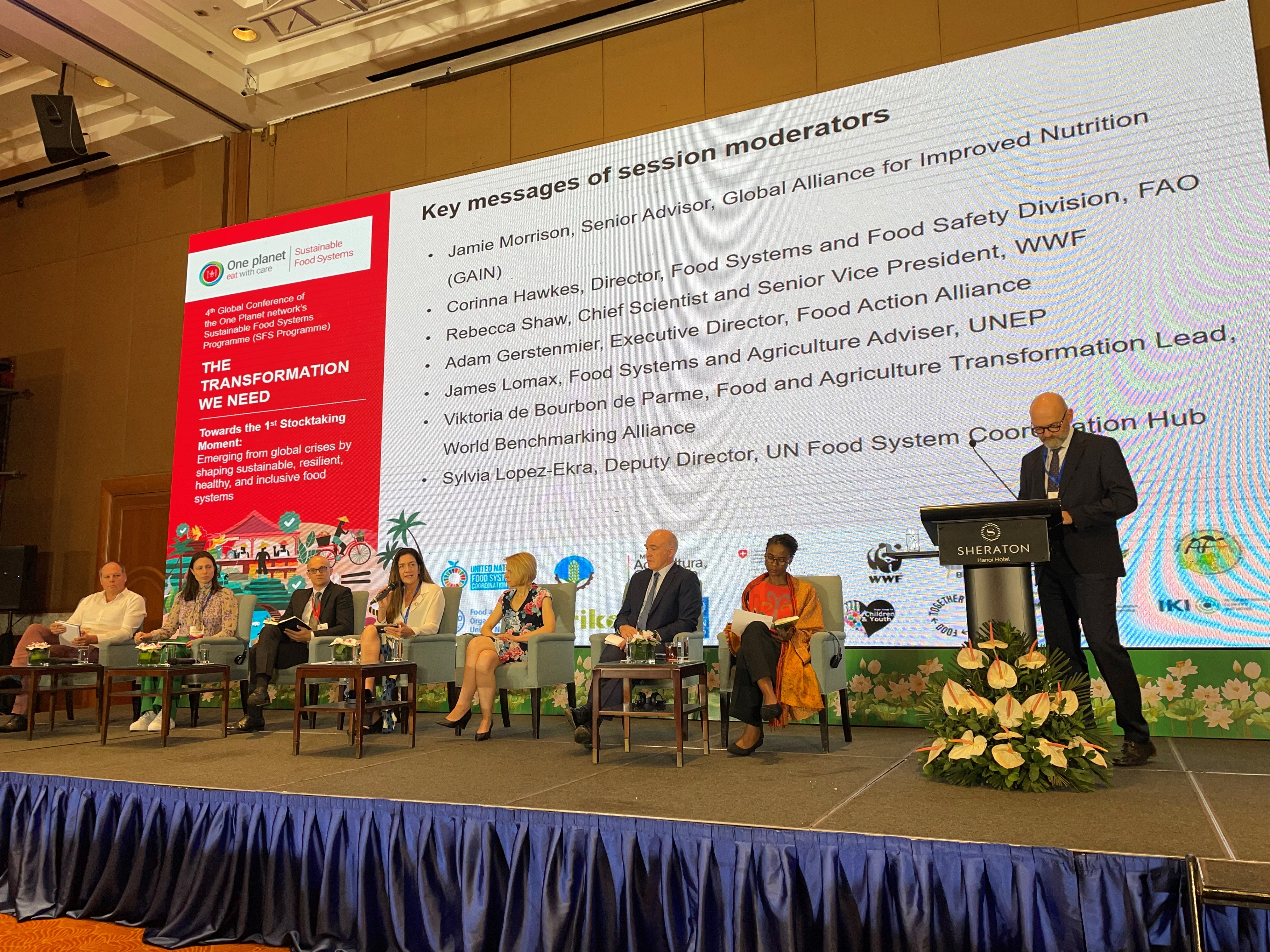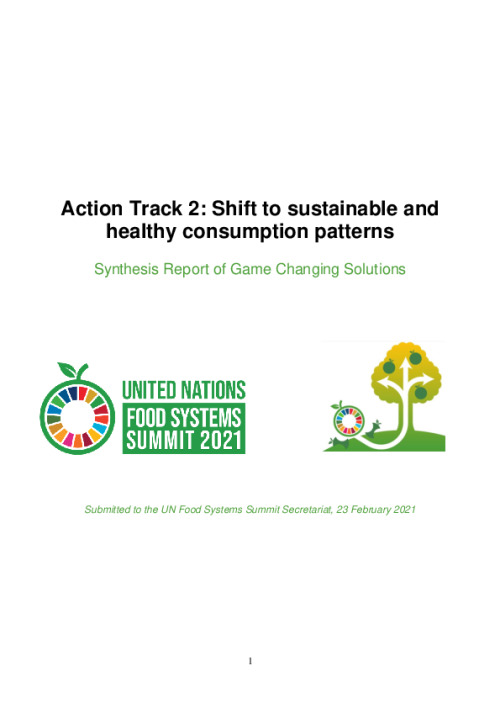The Transformation We Need: SFS Programme 4th global conference publishes its key messages outcome document

The 4th Global Conference of the Sustainable Food Systems Programme “The Transformation We Need” took place between 24-27 April 2023 in Ha Noi, Viet Nam, convening over 350 on-site and 1000 virtual participants from a range of actor groups.
Following the recommendations of the SFS Programme’s 3rd global conference in 2020 and building on the momentum of the UN Food Systems Summit in 2021 (UNFSS), the conference’s aim was to provide an overview of transformational actions, tools and initiatives to overcome key barriers and address main bottlenecks that countries are facing in relation to their food systems, demonstrate the need to further promote the food systems approach and inclusive governance, and provide a space for sharing experiences and strengthen capacities among National Food Systems Convenors and other relevant actors. Thereby, the conference made a substantial contribution to the UNFSS follow up process, including in preparation of its first Stocktaking Moment on 24-26 July 2023. The conference released an outcome document with a series of thematic key messages addressed primarily to high-level political leaders, decision-makers, business leaders, but also to food systems stakeholders at large. The outcome document highlighted three overarching conclusions:
- The importance of food systems transformation for coping with multiple challenges: sustainable, resilient, healthy and inclusive food systems are urgently needed and are a precondition to address the interrelated crises of food insecurity, malnutrition, health, climate change, biodiversity loss, conflict, as well as high energy and consumer prices.
- The need to link short-term and long-term efforts: while it is sometimes necessary to take short-term action to tackle multiple crises, such action should be conducted in the framework of a long-term strategy and a holistic and inclusive approach to food systems governance and policy making.
- The need for inclusiveness, participation and meaningful collaboration at all levels: food systems transformation is a whole-of-society task that requires engagement and effective participation of all actors across all sectors, leaving no one behind.
The conference was inaugurated by H.E. Mr. Tran Luu Quang, Deputy Prime Minister of Viet Nam, the host country to the conference, who highlighted that a conference focused on solutions to unlock food systems transformation is more necessary than ever given the multiplicity of challenges, and presented Viet Nam’s new National Action Plan for Food Systems Transformation. The inaugural keynote speech by Estrella “Esther” Penunia, Secretary General of the Asian Farmer’s Association for Sustainable Rural Development, sounded an ever-louder alarm indicating that not only are we nowhere near achieving the SDGs but that the multiple and interconnected crises of inequality, climate change, violent conflicts, and the pandemic and its consequences are increasing poverty and hunger across the globe. Ms. Penunia stressed that the key obstacles we face are a lack of policy coherence and coordination for the implementation of food systems transformation pathways, lack of stakeholder participation, especially the poor and marginalized, and a lack of political will to address power imbalances and provide adequate financing. The opening session further stressed that we face an implementation gap with regard to National Pathways for Food Systems Transformation and other key commitments, which needs to be urgently addressed at this critical time for people and planet.
Following Ms. Penunia’s keynote speech, a high-level panel of Ministers and Vice-Ministers of eight countries form four different world regions shared success stories from their respective countries and highlighted key elements and measures that have been taken since the UNFSS to accelerate the transformation towards more sustainable food systems.
The conference’s different sessions aimed to provide solutions and early signs of progress to address such challenges, including with regard to the need to revisit governance and policies at all levels; changing consumption and production patterns; promoting the transformation through science, finance, human rights and innovation; mobilizing the UNFSS “ecosystem of support”; and measuring the transformation (View the Opening session; sessions 2 & 3; sessions 4 & 5, sessions 6 & 7; and session 8 & the Closing session).
The conference’s outcome document contains a series of key messages in line with these topics, which were covered in depth throughout the event (conference proceedings available here). The organizers invited all relevant actors to take into account these key messages in the context of their National Pathways for Food Systems Transformation, and to highlight them in relevant forums and policy processes, including the 2023 Stocktaking Moment. Furthermore, the organizers invited all members of the One Planet network’s Sustainable Food Systems Programme to promote these key messages through their respective activities.


